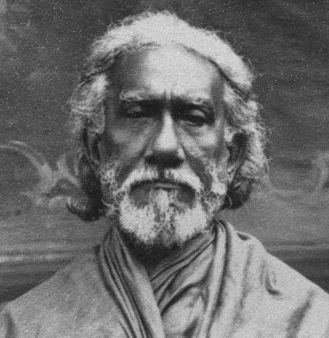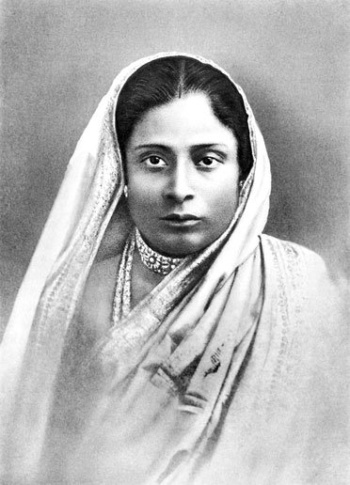 It must have been sometime in the mid-nineties when I was part of a small group spending informal time with Swami Kriyananda, who had arrived from America a few days earlier.
It must have been sometime in the mid-nineties when I was part of a small group spending informal time with Swami Kriyananda, who had arrived from America a few days earlier.
The energy was high and joyful, as always in Swami’s presence, and the conversation free flowing. I knew about the challenges he’d faced in America, where a lawsuit had been set up against him by self-styled enemies to destroy his reputation. So at a certain point I asked, “Swami, how did it go?”
“It was terrible,” he answered, and in his eyes there was an expression of genuine grief.
Then the conversation continued as before, joyful and informal. But one or two more times he repeated, “It was terrible.”
In Yogananda’s autobiography, too, we find instances of genuine grief. At the age of nine, he loses his earthly mother. About that experience the Master later writes:
When we (father and I) reached our Calcutta home, it was only to confront the stunning mystery of death. I collapsed into an almost lifeless state.
If even a great Master like Yogananda and a Self-realized disciple like Swami had to experience such overwhelming grief, why then does Sri Yukteswar list it among the meannesses of the heart?
Authentic grief occurs when the heart realizes the depth of love for the dear one lost, for the friends who betrayed us, for the partner who left us (or whom we left), for the sorrows and sufferings of others.
Beyond that grief there may even be a sense of gratitude for the full realization of that love, which all too often only comes at the moment of loss. In any case it is a deep feeling, not an emotion, usually best experienced in the solitude of one’s own heart.
This type of grief is certainly not an obstacle: it rather puts our lives in a different perspective from which maybe some wisdom can be gained. Moreover, the sense of gratitude for a love so deeply felt, along with the pain, can also become a step forward on our spiritual journey.
In order to understand Sri Yukteswar’s point, we need to study how the great ones relate to grief.Let’s look at Yogananda and his direct disciple.
The grief in Swami’s heart was not so much about the lawsuit itself, as about the fact that his own Gurubais, who had been with him at Mount Washington when the Guru was still alive, had set it up against him. Those who knew Swami better have shared that there was grief about this, that he allowed it to be, but that he detached his mind from it, thus preventing complexes from forming. His mind and will were free, and so was his heart, to feel what it felt: grief, at times, but primarily love for God and for all those who God sent to him for guidance and friendship; and full acceptance of what is.
That is what yogic self-control, in the long run, leads to: a calm, free and accepting heart.
During that informal gathering, Swami’s mind was also free, and he could shine his light with complete clarity on any subject of the conversation.
 Yogananda relates how he, after losing his mother at such a young age, seeks final healing for his wounds:
Yogananda relates how he, after losing his mother at such a young age, seeks final healing for his wounds:
Years passed before any reconciliation entered my heart. Storming the very gates of heaven, my cries at last summoned the Divine Mother. Her words brought final healing to my suppurating wounds:
“It is I who have watched over thee, life after life, in the tenderness of many mothers! See in My gaze the two black eyes, the lost beautiful eyes, thou seekest!”
Yogananda’s spiritual efforts would have to be successful, because he was born with full realization, to show that only God can bring final healing and that the spiritual path is a matter of life (with Spirit) or death (without Spirit).
So both Yogananda and his exalted disciple used the strength of their minds to not be overwhelmed by grief for any longer than necessary, and to stay connected with the powerful river of their life’s dharma.
Could it be, then, that Sri Yukteswar refers to mental grief as a meanness, not of, but to the heart?
If the mind is not kept under control, a false grief can develop – a habit of mournfully focusing on things that happened a long time ago and that bear no meaningful relation to the present. This habit will increasingly sap away all powers of initiative.
How can we prevent grief from becoming a habit of the mind that goes on forever?
Here are some possible strategies:
Try to use impersonal language, by not saying: “I am mourning” but rather: “there is grief in the heart”;
- After an initial period of mourning,see if it helps to speak about it less, and always be elective in choosing the people you share your feelings with;
- Allow the grief to be, when it comes, butuse your will to focus the mind on other, uplifting realities.In other words: use your will power – not to repress feelings, but to detach the mind from them;
- Life is short and our days are counted. “The spiritual Path is a matter of life or death.” Therefore, let’s try to take heart from Master’s example, using the techniques he has given us as a battle horse and armor “to storm the very gates of heaven.”
- Listen to Swami’s song “The Non-Blues” …and have a good time!
And finally:
- Trust the heart’s power to heal from within: it is endowed, Sri Yukteswar says, with “natural love, the heavenly gift from nature.”
If this is true, then nature and Spirit, human and Divine, live together in our hearts. The Divine naturally brings nourishment and healing, if we but develop enough willpower to prevent the mind and the ego from interfering.

4 Comments
Beautifully spoken. Thank you. Timely.
I’m grieving the loss of my BFF last month and just had to put my cat down (yes, just a cat…but still a good boy and God’s Creation). Your writing comes to me at a good time, to help me with the new challenge. Thank you for your essay.
I especially appreciate this third meanness of the heart because I’m experiencing grief in two different situations – actually for lots of things – so thank you.
Thank you Darshan for your thoughts here. Grief has been a huge challenge for me through multiple losses, and through it all, it has revealed for me, the love I have
and have had, and deepened my Self-Love by letting go more deeply and being one with All-That-Is. Sometimes it is just part of our path, and our minds don’t have to add to it with guilt, shame, or self-judgement. So thank you.